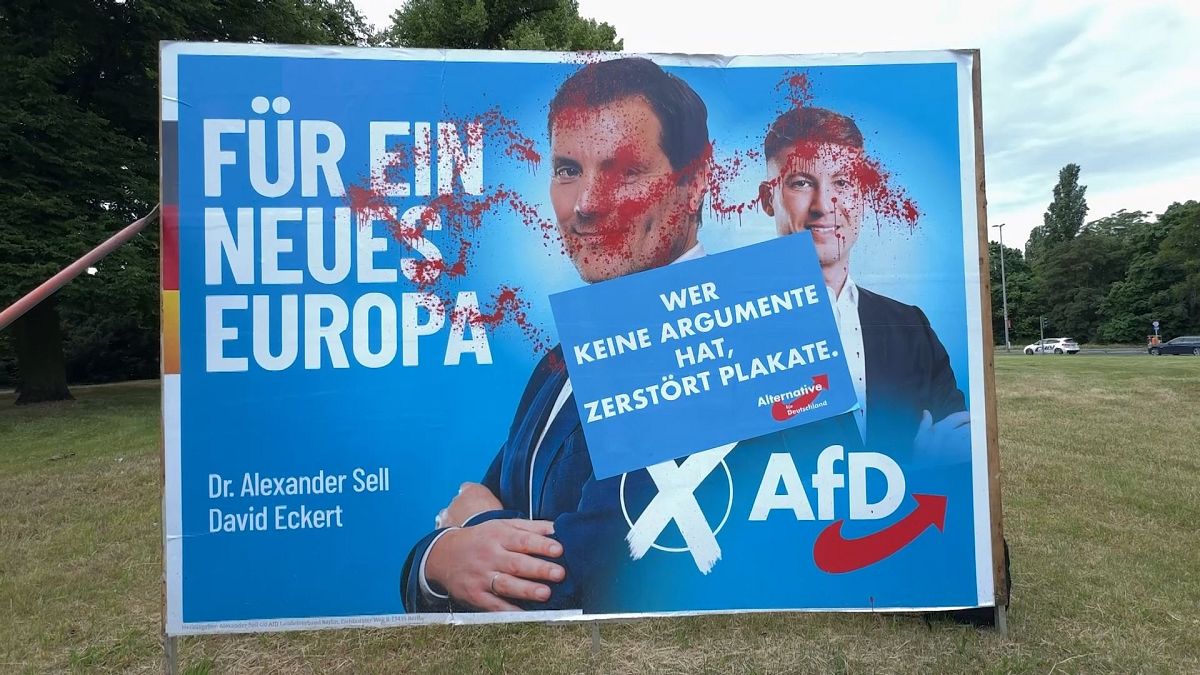Violence against politicians has been a prevalent issue in Germany in recent years, attracting significant media attention. However, victim support centers are raising alarms about the increasing incidents of everyday racism and anti-Semitic attacks in the country. Euronews recently visited Thuringia, a region known for its right-wing extremist activities, to speak with a victim of neo-Nazi violence. Mayar, a 20-year-old nurse who fled Syria during the war and has lived in Germany for nearly nine years, shared his harrowing experience of being attacked by a known neo-Nazi. Despite this not being the first violent crime committed by the perpetrator, Mayar was shocked when the verdict led to a suspended sentence.
Mayar expressed how the attack has deeply impacted his sense of security and freedom, especially when stepping out at night in his neighborhood, which is infamous for right-wing extremists. He highlighted the rise of racism in Germany, pointing to the prevalence of such incidents on the streets and online. The support for the far-right party Alternative for Germany (AfD) has been a contributing factor to the increase in racist sentiments, according to Mayar. Feeling like a stranger in his own country, he worries about the possibility of being deported despite having grown up in Germany.
The AfD’s extremist views and close associations with neo-Nazi figures have stirred controversy and led to mass protests across the country. The surge in right-wing violence has been linked to support for the AfD, with victim support groups reporting a significant increase in attacks in areas where the party has gained political influence. The delayed justice system and mild sentences for perpetrators have further fueled the cycle of violence, undermining victims’ sense of security and justice.
According to Franz Zobel, spokesperson for a victim support group, the connections between AfD supporters and perpetrators of hate crimes are alarming. They feel emboldened by the party’s rhetoric and policies, which often target immigrants and minorities. The rise in attacks is not limited to Thuringia or Germany, but is part of a larger trend observed in Europe, with far-right parties posing a threat to the values of unity and coexistence.
Investigations have revealed numerous cases of violent acts involving AfD representatives, with a significant portion of them being convicted for their actions. The slow judicial process and lenient sentences have failed to address the roots of the problem, allowing perpetrators to roam freely and continue spreading hatred. Zobel cited instances where the motives behind the crimes were overlooked, and racist offenses were not recognized in court rulings, creating a sense of impunity for hate-motivated violence.
Critics have raised concerns about the judiciary in Thuringia, accusing some judges of having close affiliations with AfD politicians and displaying bias in their decisions. The lack of acknowledgment of the political motives behind racist offenses in court verdicts has perpetuated a culture of impunity, enabling perpetrators to operate without consequences. Mayar’s case, which took several years to reach a conviction, exemplifies the challenges victims face in seeking justice in a system that often fails to hold perpetrators accountable for their actions.
The prevalence of everyday racism and anti-Semitic attacks in Germany underscores the urgent need for comprehensive measures to combat hate crimes and ensure the safety and rights of all individuals. The association between the rise in right-wing violence and support for extremist parties like the AfD highlights the role of political rhetoric in shaping social attitudes and behaviors. As victims continue to suffer the consequences of hate-motivated crimes, it is imperative for authorities to address the root causes of intolerance and discrimination, and implement effective strategies to promote inclusivity and respect for diversity in society.











